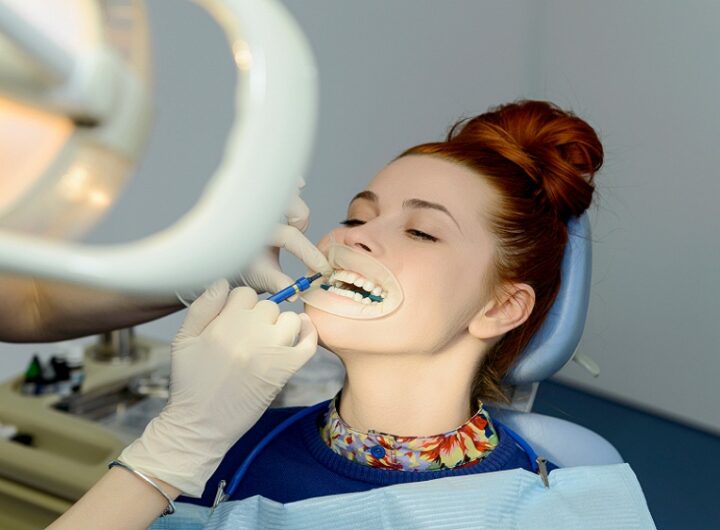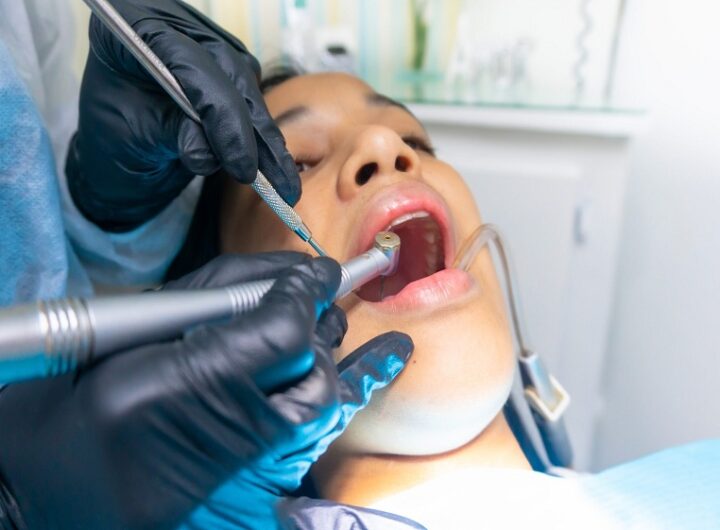
When it comes to your smile, time is of the essence. Dental emergencies don’t just cause discomfort, they can lead to serious complications if not addressed quickly. Whether it’s a throbbing toothache, a knocked-out tooth, or a painful abscess, acting fast by consulting an emergency dentist in Brookline can be the key to saving your teeth and protecting your overall health.
This is why prompt emergency dental care is not just important—it’s life-saving.
The Role of Timely Intervention in Dental Emergencies
Dental emergencies are often more than just an inconvenience. They can signify underlying issues that, if left untreated, escalate and lead to permanent damage or even life-threatening conditions. Getting proper dental care as soon as possible can mean the difference between losing a tooth or preserving it, between a minor health hiccup and a major medical problem.
Prompt intervention can not only save your teeth but also greatly reduce your pain and discomfort. Emergency dentists specialize in handling urgent cases, providing quick and effective help to prevent complications. But why is timing so crucial? Immediate action helps stop infections, addresses bleeding or swelling, and eliminates the risks of worsening damage—all things that delay would only exacerbate.
Common Dental Emergencies and Their Urgency
Some dental situations require immediate action, while others are less urgent but still need attention. Knowing the difference can help you react appropriately in a crisis.
1. Knocked-Out Tooth
Few dental emergencies are as time-sensitive as a knocked-out tooth. If a tooth is dislodged, quick action (ideally within 30 minutes) significantly increases the chance of saving it. Rinse the tooth gently with water, keeping it moist by placing it back in the socket, storing it in milk, or using a saline solution. Then, head to the dentist immediately.
2. Abscess or Severe Infection
Dental abscesses are infections that form pockets of pus around the tooth or gums. They’re not only painful but also dangerous, as the infection can spread to other parts of the body, including the jaw, neck, and even the brain. Signs include swelling, fever, a foul taste in the mouth, or difficulty opening your mouth. Treatment often requires draining the abscess and addressing the infection promptly.
3. Severe Toothaches
While occasional tooth sensitivity or mild discomfort may not constitute an emergency, severe and persistent tooth pain should never be ignored. This could point to a deeper issue like advanced tooth decay, gum disease, or an exposed nerve. Quick treatment prevents the pain from worsening and addresses the root cause before it escalates.
4. Broken or Cracked Teeth
A tooth that’s chipped or cracked may not seem urgent unless it causes pain. However, these issues can leave your tooth vulnerable to infection or further damage. Seeking timely care is crucial, especially if the crack exposes the inner pulp or nerves of the tooth.
5. Uncontrolled Bleeding or Facial Swelling
Heavy bleeding or serious swelling after facial trauma, surgery, or a dental procedure requires immediate care. These symptoms may indicate a significant injury or infection that demands professional intervention.
The Risks of Delaying Treatment
Postponing care for a dental emergency can lead to serious consequences. Here are just some of the potential risks:
Spread of Infection
Bacterial infections in the mouth can quickly spread to other parts of your body, leading to conditions like sepsis, which is life-threatening. Early treatment stops the infection before it becomes systemic.
Permanent Tooth Loss
Many dental issues, such as knocked-out or loose teeth, can be resolved if treated quickly. However, waiting too long often results in losing the tooth entirely.
Worsening Pain and Discomfort
Dental pain rarely improves on its own. Without proper treatment, the issue causing the pain usually progresses, making the experience more unbearable over time.
Costly Future Treatments
Delayed care often leads to more extensive and expensive procedures later. For example, a simple filling could escalate into the need for a root canal or even tooth extraction if not addressed quickly.
Conclusion
Time is a critical factor when dealing with dental emergencies. Acting quickly not only saves your smile but also prevents complications that could pose risks to your overall health. Don’t wait when something feels wrong, trust your instincts and seek emergency dental care to protect both your teeth and your well-being.

 The Best Practices For Maintaining Healthy Gums In Willow brook
The Best Practices For Maintaining Healthy Gums In Willow brook  Transform Your Smile: Top Cosmetic Dentistry Treatments for Every Age
Transform Your Smile: Top Cosmetic Dentistry Treatments for Every Age  Choosing the Right Family Dentist: What to Look For
Choosing the Right Family Dentist: What to Look For  Choosing the Right Family Dentist: What to Look For
Choosing the Right Family Dentist: What to Look For  Understanding The Difference: When To See A Cosmetic Dentist Vs. An Orthodontist
Understanding The Difference: When To See A Cosmetic Dentist Vs. An Orthodontist  Transform Your Smile: The Importance Of Cosmetic Dentistry
Transform Your Smile: The Importance Of Cosmetic Dentistry  From Lab to Lifestyle: How the Science of Quality Assurance in Manufacturing Reliable Supplements Protects Consumers and Businesses
From Lab to Lifestyle: How the Science of Quality Assurance in Manufacturing Reliable Supplements Protects Consumers and Businesses  Top Myths About Pediatric Home Health Care Debunked
Top Myths About Pediatric Home Health Care Debunked  Immunity IV Drips – Your Frontline Defense Against Modern-Day Fatigue, Illness, and Burnout
Immunity IV Drips – Your Frontline Defense Against Modern-Day Fatigue, Illness, and Burnout